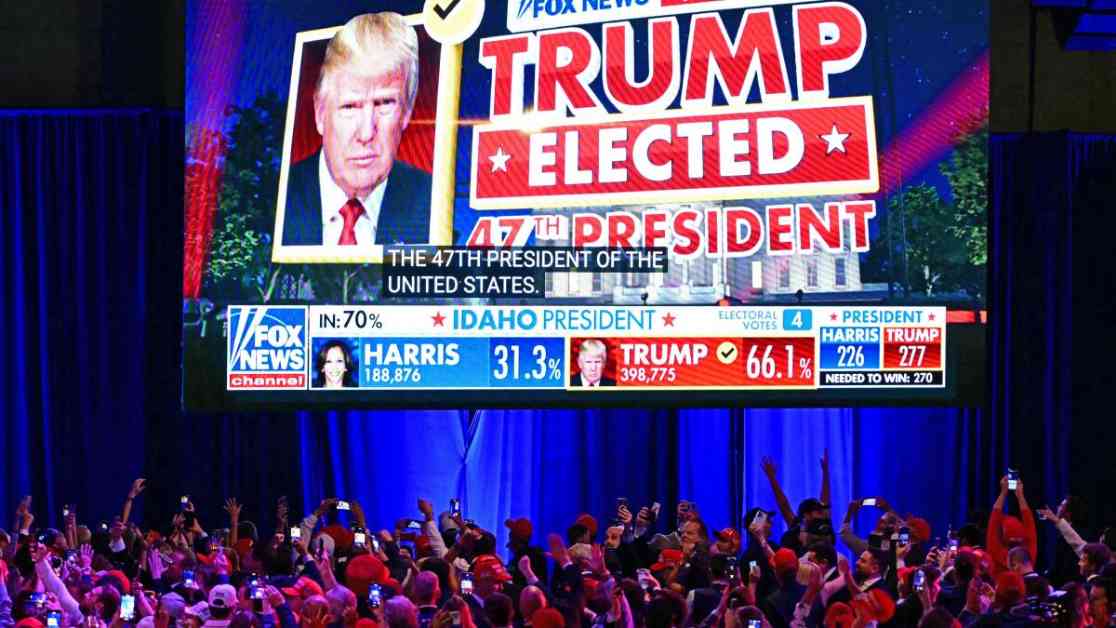In his victory speech on Nov. 6, President-elect Donald Trump claimed that Americans had given him a strong mandate. His transition team has also been echoing this sentiment, referring to his “MAGA Mandate” and a “historic mandate for his agenda.” However, as more votes have been counted in California and other blue states, Trump’s lead in the popular vote has decreased.
The latest count from the Cook Political Report shows Trump winning 49.83% of the popular vote, with a 1.55% margin over Vice President Kamala Harris. This puts his share of the popular vote in the bottom half for American presidents, far below that of Lyndon B. Johnson in 1964, who won 61.1% of the popular vote.
Only three presidents in the last 75 years have had a smaller popular vote margin than Trump’s current lead. This has led to questions about whether Trump truly has a mandate from the American people to push through his agenda.
While Trump won a commanding victory in the electoral college, questions remain about his ability to garner public support for his more controversial policy proposals. Democrats argue that the results do not demonstrate majority public support for Trump, and that he should not have a blank check to appoint his Cabinet without Senate confirmation.
On the other hand, GOP strategist Lanhee Chen believes that Trump’s victory was resounding and defied expectations. Despite not winning the popular vote by a large margin, Chen argues that Trump’s win was significant and should not be undermined.
When it comes to the concept of a presidential mandate, scholars of American politics have been skeptical. The idea of a mandate is often invoked by politicians in weak positions, and there is little consensus on when a candidate has truly achieved it.
Trump’s claims of a mandate are not unique, as past presidents from both parties have also made similar assertions. The media’s coverage of Trump’s victory has been scrutinized by his team, who believe he is being held to a different standard than Democratic presidents.
Regardless of the popular vote margin, Trump’s control of both houses of Congress gives him a strong legislative advantage. However, he may still face challenges in pushing through his more controversial agenda items, as public support for some of his proposals is not overwhelming.
Moving forward, Trump will have to navigate the political landscape carefully and seek common ground with moderate Republicans and Democrats to effectively govern. If he fails to do so, he may find himself in a more challenging position than he anticipated.



























